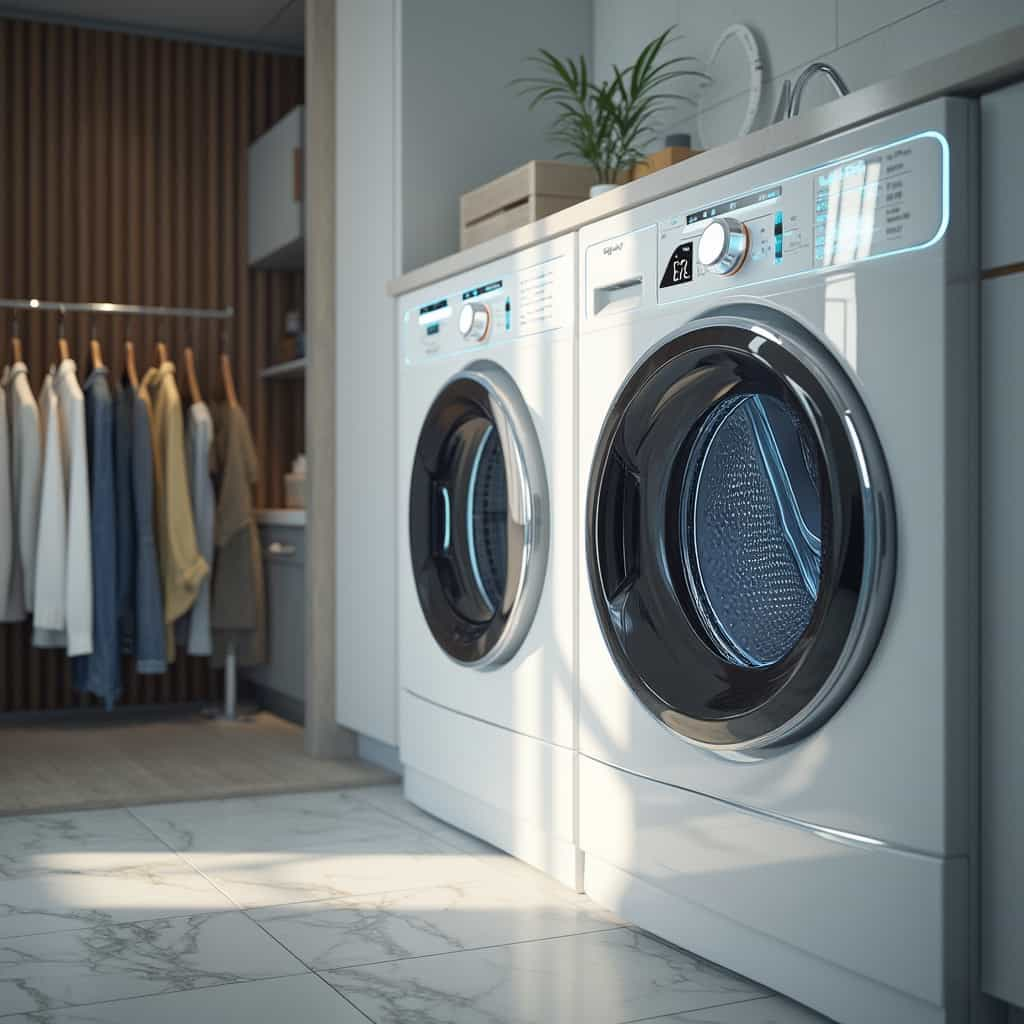In recent years, the humble clothes dryer has seen a remarkable transformation, evolving from a simple appliance to a sophisticated machine capable of incredible feats of energy efficiency and performance. As technological advancements continue to surge, consumers are presented with a plethora of options that promise not only sleek designs but also smart functionalities. Among these innovations, heat pump technology stands out as a significant leap forward. Unlike conventional dryers that use a lot of energy, heat pump dryers recycle hot air, making them much more efficient and environmentally friendly.
Heat pump dryers are particularly popular in regions like Europe, where energy costs are higher and environmental regulations are stricter. In countries such as Germany, these dryers account for a significant portion of sales, driven by both ecological concerns and economic incentives. According to a study published by Eurostat, the adoption rate of energy-efficient appliances, including heat pump dryers, has increased by 35% over the past decade.
Meanwhile, in the United States, the movement towards smart homes has sparked increased interest in dryers with smart technology. Many of the newer models are now integrated with Wi-Fi connectivity, allowing users to control them remotely via smartphone apps. This feature not only adds convenience but also allows for more precise energy tracking and water usage, appealing to eco-conscious consumers.
A notable model in the market is the Samsung Smart Dryer, which boasts artificial intelligence capabilities. It learns the user’s preferences over time and automatically adjusts the drying cycles accordingly. Similarly, LG’s new line of Smart Dryers utilizes AI to optimize drying time and energy use, reducing wear and tear on clothing. These innovations are part of a broader trend targeting the growing consumer demand for smarter, more efficient home appliances.
Prominent home appliance manufacturers are also focusing on sustainability by using more recycled materials in their products. For example, Miele’s latest EcoDryer consists of up to 60% recycled plastics and has been awarded for its eco-friendly design. This direction not only appeals to environmentally conscious buyers but also aligns with global sustainability goals.
Investing in a dryer today involves understanding the balance between price, energy efficiency, and technology. The Whirlpool 7.4 cu. ft. Electric Dryer is frequently highlighted in consumer reviews for offering the best value for money. It is praised not only for its affordability but also for its robust performance and energy star rating. Consumer Reports lists it as one of the best buys of the year, corroborating the positive feedback from users across North America.
Another trend reshaping the market is the emergence of compact and space-saving dryers, primarily designed for urban households with limited space. Brands like Bosch and AEG are leading this niche with their range of slimline models that can be stacked or wall-mounted. These models maintain high performance while occupying minimal space, making them ideal for city dwellers in crowded metropolises.
In terms of purchasing trends, the Asia-Pacific region is seeing rapid growth in dryer adoption as middle-class populations expand and urbanization trends persist. Mainland China, in particular, has seen a 20% year-on-year increase in clothes dryer sales, indicative of shifting lifestyle preferences and increasing disposable income. According to market analytics firm Statista, Asia-Pacific is poised to become one of the fastest-growing markets for clothes dryers by 2025.
Globally, the shift towards online shopping has transformed how consumers buy appliances. E-commerce platforms like Amazon and Best Buy now offer extensive selections of dryers, complete with customer reviews and ratings to guide buyers. Significant discounts and exclusive online deals often accompany these listings, enticing consumers to make purchases digitally. The convenience and competitive pricing online further fuel global sales and offer substantial economic benefits to savvy shoppers.
Finally, as consumers become more conscious of their carbon footprint, the industry’s focus on energy efficiency and eco-friendly technology is expected to grow. Expert predictions suggest the next frontier for clothes dryers will be even more advanced integration with home energy management systems, allowing users to seamlessly optimize their energy use throughout the household. As these technologies develop, the clothes dryer will continue to revolutionize the everyday laundry experience.
You may also like
Electric Toothbrushes: focusing on recent innovations and Top Deals in Personal Care
The article provides an in-depth exploration of the world of electric toothbrushes, focusing on recent innovations, market trends, and the best models available. It covers studies that highlight their benefits, regional buying trends, and offers an analysis of the best value-for-money options. Additionally, it touches upon newly released models and the technological advancements driving the market.
The evolving world of personal grooming razors
This article explores the evolving world of personal grooming razors, detailing the latest innovations, trends, and market offerings. It delves into the cutting-edge technologies, the best models available, and compares global purchasing trends to identify the most cost-effective and high-quality options for consumers across different regions.
Personal Care Epilators: Exploring new releases and global buying trends
Personal care epilators have undergone significant innovation, offering consumers a diverse range of models with cutting-edge technology for smoother results. This article delves into the latest trends, models, and market insights for epilators, exploring new releases, the best quality-price solutions, and global buying trends.
The Evolving World of Hair Dryers: New Technologies and Best Buys
As the hair care industry continues to evolve, hair dryers have emerged with cutting-edge technologies and trend-setting designs. This article delves into the latest developments in hair dryer technology, emerging market trends, best models for value, and exciting global purchase behaviors.
